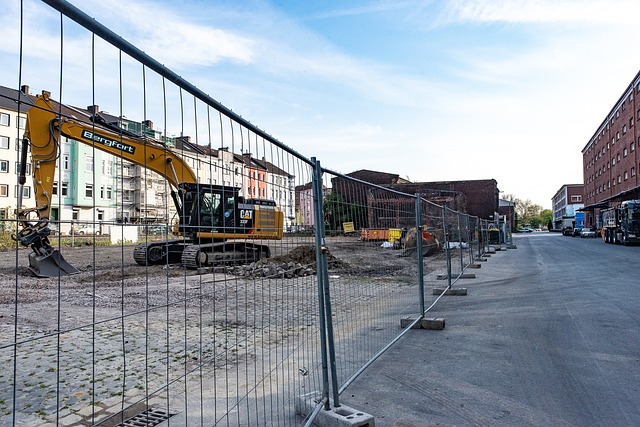In New Bedford, Massachusetts, the pursuit of eco-friendly living extends beyond backyard gardens. Eco-friendly fencing materials offer an opportunity to enhance outdoor spaces while minimizing environmental impact. This article explores sustainable alternatives to traditional fences, highlighting their benefits for local ecosystems and residents. From recycled plastic to organic wood, we delve into various options, installation tips, and local suppliers, empowering New Bedford dwellers to make informed choices for greener backyards.
- Eco-Friendly Fencing Options in New Bedford
- Benefits of Sustainable Fence Materials
- Choosing the Right Green Fencing for Your Space
- Installation and Maintenance Tips for Eco-Fences
- Local Availability & Suppliers in MA
Eco-Friendly Fencing Options in New Bedford
In New Bedford, MA, eco-friendly fencing options are gaining popularity as homeowners and businesses seek sustainable alternatives to traditional materials. One such option is recycled plastic fencing, which is made from post-consumer plastic waste, reducing landfill contributions and conserving natural resources. These fences are durable, low-maintenance, and available in various styles and colors, making them an aesthetically pleasing choice for any landscape.
Another green option is wooden fencing constructed from certified, sustainably harvested wood or alternative materials like bamboo. These options not only reduce the carbon footprint associated with traditional wood production but also provide excellent insulation, helping to regulate outdoor temperatures. Additionally, many eco-friendly fence installations in New Bedford incorporate native plant landscapes, further enhancing biodiversity and local ecosystems.
Benefits of Sustainable Fence Materials
In an era where environmental consciousness is paramount, opting for eco-friendly fencing materials offers a myriad of benefits for New Bedford residents and businesses alike. These sustainable alternatives not only contribute to a greener, cleaner ecosystem but also provide long-lasting durability and aesthetic appeal. By choosing materials such as recycled plastic, bamboo, or organic wood treated with natural preservatives, local property owners can reduce their carbon footprint while enjoying the security and visual enhancement that fences offer.
Moreover, sustainable fencing options often prove more cost-effective over time, defying the common misconception that eco-friendly products are more expensive. With proper installation and maintenance, these materials can withstand harsh weather conditions and reduce the need for frequent replacement, translating to significant savings for homeowners and business managers in New Bedford.
Choosing the Right Green Fencing for Your Space
When considering eco-friendly fencing options, it’s crucial to evaluate your space and needs. Different materials offer unique advantages; for instance, bamboo fences are sustainable and aesthetically pleasing but may require more maintenance, while recycled plastic fences are durable and low-maintenance alternatives. In New Bedford, MA, the climate and local landscape can also play a role in your choice. Consider the amount of sun exposure, wind patterns, and nearby plants to ensure the fence material aligns with your environment.
Additionally, think about the visual impact you desire. Do you want a natural, organic look or a more modern, structured design? This decision will narrow down your options further. Local regulations and property associations may also have guidelines on fencing styles and materials, so it’s essential to check these restrictions before making a final choice.
Installation and Maintenance Tips for Eco-Fences
When installing an eco-friendly fence, it’s crucial to choose a suitable location with proper drainage and sunlight exposure. Start by preparing the ground, ensuring any existing vegetation is managed appropriately. Laying the fence posts and rails should be done according to manufacturer guidelines for optimal stability. Use sustainable fasteners like recycled plastic clips or metal connectors to join the panels.
Maintenance requires regular cleaning to remove dirt and debris, using eco-friendly cleaning solutions if necessary. Inspect the fence periodically for any signs of damage or wear, replacing damaged sections promptly. Keep the area around the fence clear of overgrown plants to prevent them from damaging the structure. Annual re-tightening of connections can maintain the fence’s integrity, ensuring it serves as an effective and aesthetically pleasing boundary while minimizing environmental impact in New Bedford, MA.
Local Availability & Suppliers in MA
In Massachusetts, particularly in New Bedford, homeowners and contractors have access to a growing number of eco-friendly fencing materials supplied by local businesses. Companies like Green Building Supply and Mass Forest Products offer products such as recycled plastic, bamboo, and pressure-treated lumber from sustainable sources. These suppliers play a crucial role in promoting environmentally conscious practices within the community by providing easily accessible, high-quality alternatives to traditional fencing materials.
New Bedford’s proximity to natural resources also facilitates the local production of some eco-friendly options, like wood from responsibly managed forests. This reduces transportation emissions and further enhances the sustainability of these fencing materials. Local suppliers are well-positioned to offer expert advice on product suitability for various conditions, making it easier for residents to make informed decisions that benefit both their properties and the environment.
